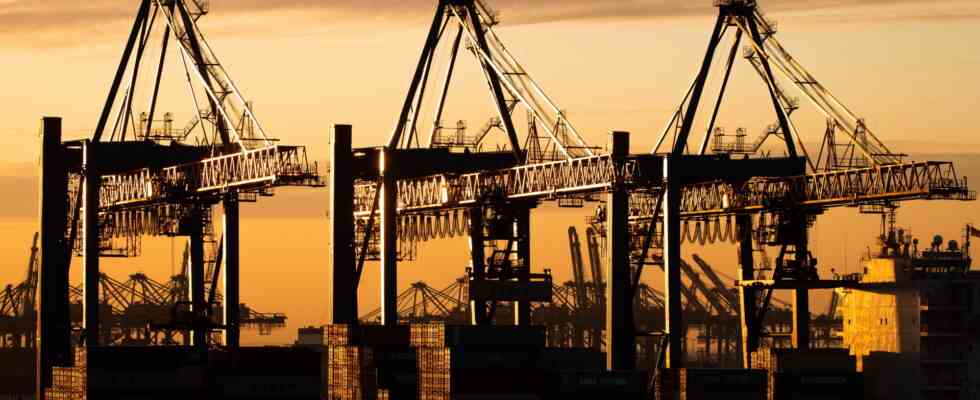Status: 10/26/2022 1:38 p.m
The Chinese group Cosco has acquired a 24.9 percent stake in the Tollerort terminal in Hamburg and thus does not have a blocking minority. Nevertheless, economic experts continue to see risks.
Rarely has a figure been repeated as often as this: The shipping company Cosco should be allowed to acquire a 24.9 percent share in a container terminal in the port of Hamburg. Actually, Cosco wanted to buy 35 percent, but the federal government puts a stop to it: Otherwise, the Chinese company would have acquired too many rights at the same time.
The compromise that has now been found prevents Chinese investors from having too much of a say, according to Klaus Nieding, Vice President of the German Association for the Protection of Securities: “According to all current corporate law regulations and provisions of the articles of incorporation, 25.1 percent would form a so-called blocking minority. ” This means that this shareholder can then prevent decisions. No amendments to the Articles of Incorporation would be enforceable and it would not be possible to transfer the Company’s business entirely to another area. “But if I only have 24.9 percent, then I remain under this blocking minority and can always be overruled by the major shareholder,” says Nieding.
“Pearl Necklace of Participation in Ports”
Rolf Langhammer from the Kiel Institute for the World Economy calls this “saving face for both sides”, i.e. for the Germans and the Chinese. A refusal would have further tarnished the already ailing relationship with China. Nevertheless, the economic expert is of the opinion that the size of the stake is not decisive: “The problem is that Cosco is a key player in the maritime and digital Silk Road.” The maritime Silk Road is the string of pearls of stakes in ports that Cosco has acquired over the years. And the digital Silk Road is the digital processing of maritime trade. “And Cosco has considerable ambitions together with other Chinese partners to advance the digitization of sea transport,” warns Langhammer.
This may be the much-cited critical infrastructure that could mean Cosco acquires another competitive edge. According to Langhammer, only conditions could prevent the group from taking a dominant position. “It must be clear that the software that Cosco uses in digitization is open to other competitors, so that cooperation with other competitors is possible,” the expert demands. And: “Above all, it is also clear where the data of non-Chinese customers is located. Is it on Chinese servers? Are they exposed to access by the Chinese authorities?”
How prepared is the German state?
Cosco followed the same strategy when it acquired the Greek port of Piraeus in 2012. This is now one of the most successful ports in Europe – but it is also under Chinese control. Clemens Fuest, President of the Munich ifo Institute, does not think that things could go as far in Germany. “The fact is that China takes a risk when it invests with us, because such investments can possibly be expropriated,” explains Fuest. “Or if China tried to disrupt port operations. In principle, the government could simply put operations under state supervision.”
The question, however, is whether the German state is actually prepared to intervene when critical infrastructure is at risk. And whether possible conditions are issued and enforced so that Cosco in Hamburg cannot ultimately intervene too much in processes.
Chinese participation and effects on the port of Hamburg
Bibiana Barth, HR, 10/26/2022 12:46 p.m

